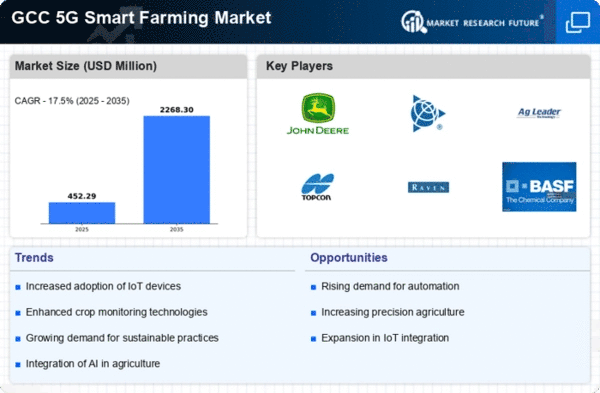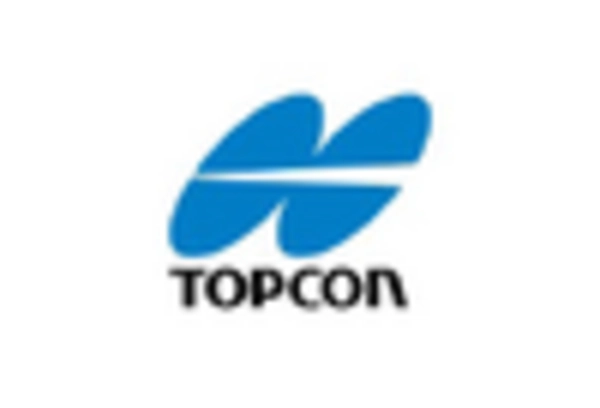Rising Demand for Food Security
Food security remains a pressing concern in the GCC, where limited arable land and water scarcity pose significant challenges. The 5G Smart Farming Market is positioned to address these issues by enabling precision agriculture techniques that optimize resource use. With the population in the GCC expected to grow by 20% by 2030, the demand for sustainable food production is intensifying. Smart farming solutions, powered by 5g connectivity, allow for better crop yields and reduced waste, which are essential for meeting future food demands. This increasing focus on food security is likely to drive investments in the 5g smart-farming market, as stakeholders seek innovative solutions to enhance agricultural productivity.
Enhanced Data Analytics Capabilities
The integration of advanced data analytics into the 5G Smart Farming Market is transforming agricultural practices in the GCC. Farmers are increasingly utilizing big data and machine learning algorithms to analyze vast amounts of information related to crop performance, weather conditions, and market trends. This capability allows for more informed decision-making and improved operational efficiency. As data analytics tools become more accessible, it is anticipated that the market will grow by approximately 15% annually. The ability to harness data effectively is likely to empower farmers to optimize their yields and reduce costs, thereby driving further interest and investment in the 5g smart-farming market.
Environmental Sustainability Initiatives
Environmental sustainability is becoming a focal point in the GCC, influencing the 5G Smart Farming Market. As countries in the region strive to reduce their carbon footprints and promote sustainable practices, smart farming technologies are emerging as viable solutions. These technologies help in minimizing water usage, reducing chemical inputs, and enhancing soil health. The GCC governments are implementing various initiatives aimed at promoting sustainable agriculture, which is expected to increase the adoption of 5g smart-farming solutions. Reports suggest that the market could see a growth rate of 25% as farmers adopt practices that align with sustainability goals. This shift not only benefits the environment but also enhances the market's appeal to eco-conscious consumers.
Investment in Agricultural Infrastructure
The GCC countries are investing heavily in agricultural infrastructure to support the growth of the 5G Smart Farming Market. Governments are recognizing the importance of modernizing agricultural practices to ensure food security and sustainability. For instance, investments in irrigation systems, storage facilities, and transportation networks are being prioritized. It is estimated that the region will allocate over $5 billion towards agricultural infrastructure projects in the next five years. This investment is expected to facilitate the adoption of smart farming technologies, as improved infrastructure will enable better connectivity and data exchange. Consequently, the 5g smart-farming market is likely to benefit from these developments, fostering a more resilient agricultural sector.
Technological Advancements in Agriculture
The 5G Smart Farming Market is experiencing a surge due to rapid technological advancements in agricultural practices. Innovations such as IoT devices, drones, and AI-driven analytics are becoming increasingly integrated into farming operations. These technologies enable farmers to monitor crop health, soil conditions, and weather patterns in real-time, enhancing decision-making processes. In the GCC region, the adoption of these technologies is projected to increase by approximately 30% over the next five years. This growth is driven by the need for efficient resource management and increased productivity, which are critical in arid climates. As farmers leverage these advancements, the 5g smart-farming market is likely to expand, providing opportunities for technology providers and agricultural stakeholders alike.
















